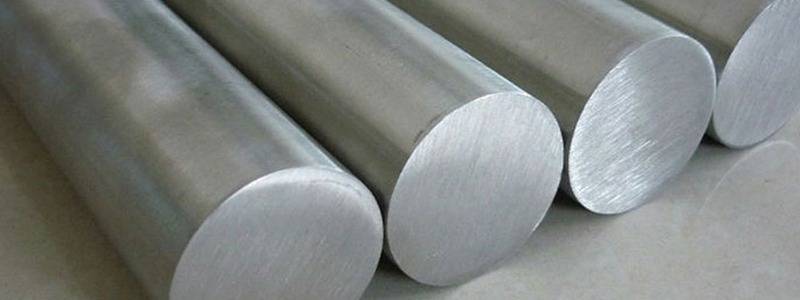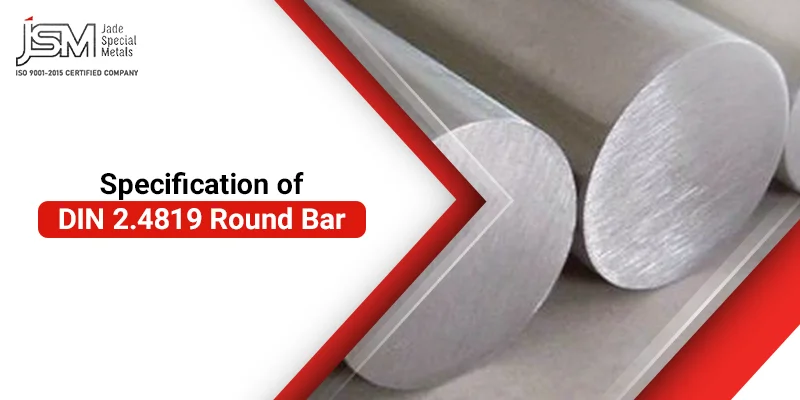DIN 2.4819 refers to a nickel-chromium-molybdenum alloy known as Inconel 625. This alloy is known for its high strength, outstanding fatigue and thermal-fatigue resistance, oxidation resistance, and weldability. Here are the specifications for DIN 2.4819 round bars:

Chemical Composition
- Nickel (Ni): 58.0% min
- Chromium (Cr): 20.0-23.0%
- Molybdenum (Mo): 8.0-10.0%
- Iron (Fe): Balance
- Niobium (Nb) + Tantalum (Ta): 3.15-4.15%
- Manganese (Mn): 0.5% max
- Silicon (Si): 0.5% max
- Carbon (C): 0.1% max
- Sulfur (S): 0.015% max
- Aluminum (Al): 0.4% max
- Titanium (Ti): 0.4% max
- Cobalt (Co): 1.0% max
Mechanical Properties
- Tensile Strength: 827 MPa min
- Yield Strength (0.2% offset): 414 MPa min
- Elongation: 30% min
- Hardness: Rockwell B (HRB) 100 max
Physical Properties
- Density: 8.44 g/cm³
- Melting Point: 1290-1350°C
- Thermal Conductivity: 9.8 W/m·K at 20°C
- Coefficient of Thermal Expansion: 12.8 µm/m·°C (20-100°C)
Standards and Specifications
- ASTM: B446, B443, B444, B704
- ASME: SB446, SB443, SB444, SB704
- DIN: 17752, 17750, 17751, 17754
Typical Applications
- Aerospace: for turbine blades, seals, and exhaust systems.
- Marine: for seawater components and offshore platforms.
- Chemical processing: for heat exchangers, reactor vessels, and columns.
- Nuclear industry: for reactor cores and control rod components.






